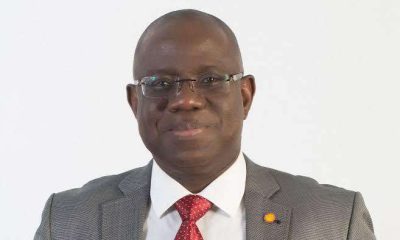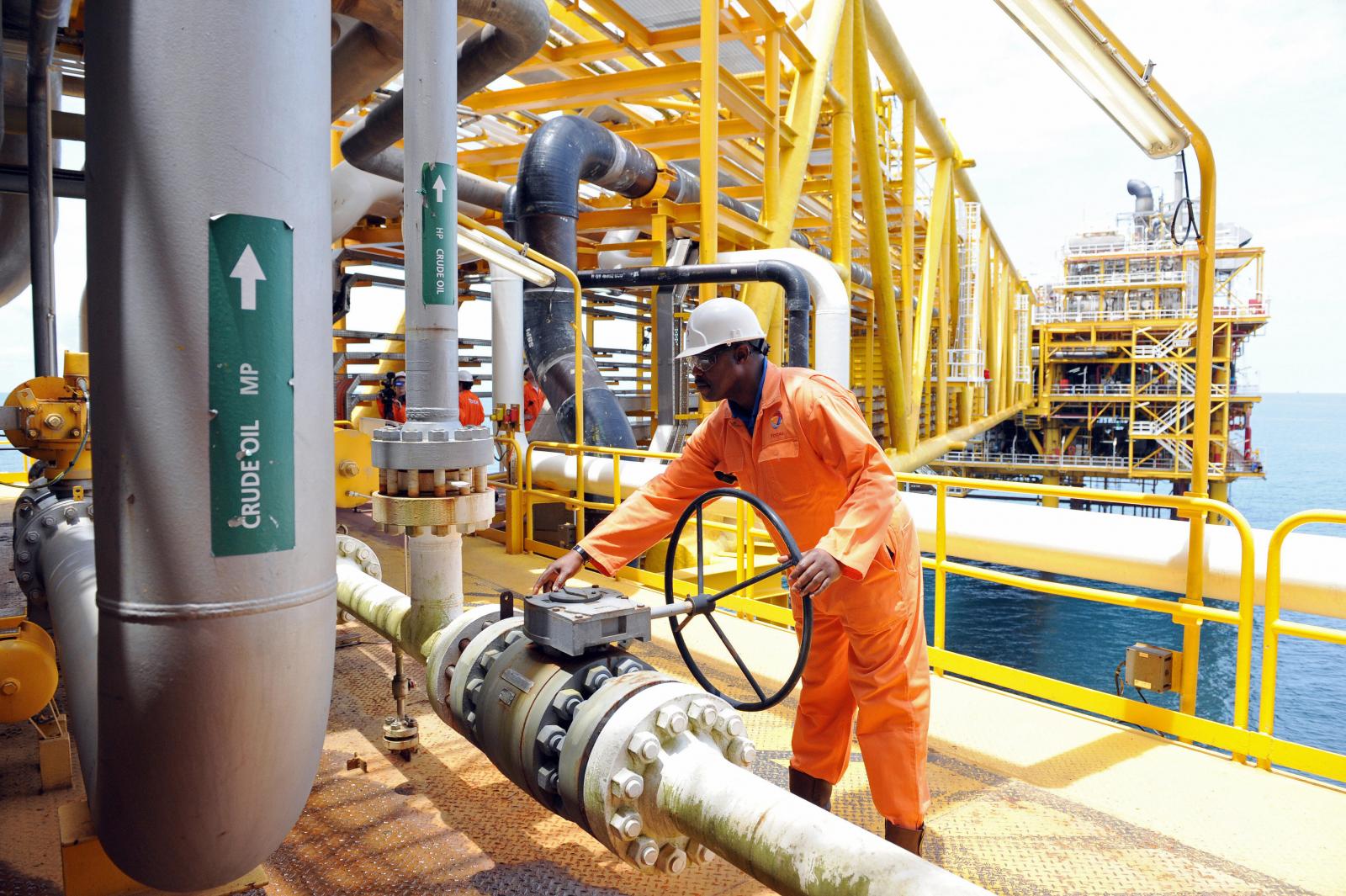Business
NNPC becomes largest petroleum marketer

By AYOOLA OLAOLUWA
More oil marketing firms are divesting from the nation’s downstream petroleum sector as operating cost continues to soar and profits tumble, Business Hallmark can report.
According to BH findings, more than 45 firms, mostly owned by members of the Independent Petroleum Marketers Association of Nigeria (IPMAN), have exited the refined petroleum products retail business in the last four years.
One of such players is Forte Oil Plc. owned by billionaire businessman, Mr. Femi Otedola, who concluded the sale of his 75% stake in the oil firm to Prudent Energy, a local oil trading firm in June 2019.
“A few years ago, my team and I embarked on an arduous task of transforming a moribund petroleum marketing business, African Petroleum Plc (formerly British Petroleum) into Forte Oil Plc; a leading integrated solutions provider with solid footprints in downstream petroleum marketing, Upstream Services and Power Generation and one in which we built intrinsic value to the benefits of our shareholders.
“In line with my principle of business focus, we have divested from our marketing and upstream businesses and shall from now on focus and consolidate on the gains of our power generation business, Geregu Power Plc.
“We wish our successors the very best and urge them to build on our legacies which have been established since 1964,” Otedola had said.
Forte Oil had earlier announced in December 2018 that its controlling shareholder, Otedola, was selling off his interest in the firm.
Though the financial details of the transaction were not disclosed, a source close to the Epe-born billionaire told our correspondent that he sold his shares at Forte Oil for $250 million.
The current market capitalisation of the company (now Ardova Plc) stands at $40.2 million (N18.1billion) at the close of business on Friday, October 28, 2022.
Likewise, ExxonMobil and Oando Plc. followed suit by divesting 60 per cent of their shares respectively to local investors, leaving Total Nigeria as the only international oil company still playing at the downstream sector.
While ExxonMobil, owners of Mobil Oil (now 11 Plc), sold its shares in the oil firm to the preferred bidder, NIPCO, on April 1, 2017, with the remaining 40 per cent retained by Nigerian shareholders, Oando Nigeria Plc on the other hand, sold 60 per cent stake in Oando Marketing Limited (now OVH Energy) to Helios Investment Partners and the Vitol Group in July 2016.
The rush to cut losses and get out of the tight petroleum retail market is not limited to major marketers, but also members of IPMAN who have been selling their loss making businesses to interested buyers, especially the Nigerian National Petroleum Company Limited (NNPCL) which has been busy mopping up filling stations around the country to consolidate its retail outlet, NNPC Retail.
The nation’s national energy company, however, caught a big fish on October 1 when it announced the acquisition of Oando’s 350 retail service stations, owned and managed by OVH Energy.
Announcing the takeover in a statement, OVH Energy said the company will be merged with NNPC Retail Limited (NRL). It explained that the move was aimed at creating a leading downstream energy firm in Nigeria and West Africa, which is driven by operational efficiency, best-in-class management, and physical infrastructure while offering premium petroleum products and related services to customers.
With the acquisition, NNPC Retail Limited becomes the largest petroleum products marketer in the country with over 850 outlets.
According to BH findings, most operators in the downstream petroleum sector have been operating in a very hostile environment, with many players uncomfortable with the lack of reforms in the downstream sector of the petroleum industry.
Sources blamed the rise in the rate of divestments on the failure of the Federal Government to come up with a clear direction for the downstream sector of the oil and gas industry.
According to one of the sources, almost all marketers, excluding the NNPCL, have suspended investment in construction of new retail outlets in Nigeria’s downstream following the delay in the implementation of Petroleum Industry Act and uncertainty surrounding investment climate.
“I can tell you without mincing words that most players in the nation’s oil and gas sector have seen their profits tumble in the last three years.
“Owing to several factors, especially the ever rising cost of doing business in the country, our profit margins have been eroded.
“Like every other businesses, we also depend largely on generators to power our outlets. With diesel now selling at an average of N750, there is no way we can continue to stay in business.
“No matter how you cut cost, the most you can make on a litre of petrol is N3. Considering that the biggest fuel tanker carries only 33,000 litres when fully loaded, the highest turnover marketers can make is N99,000.
“And we have not talked about spillage, energy and personnel cost. An average filling station will need a 100KVA generator to power the facility, especially fuel pumps and will need about100 litres of diesel at N750/litre daily. That is N75,000 for diesel alone.
“The truth of the matter is that most filling stations, except major ones like Mobil, Oando, Total and NNPC mega stations, cannot dispense a full tanker bearing 33,000 litres in a day.
“NNPC is the sole importer of petroleum products and supply to us at a very unfair price, leaving us with low margins.
“Our major problem now is margins. Given the depreciation of the naira in recent years, the margins have been depreciating in real terms.
“And this is the same environment where not only are governments requiring us to pay more money for various things, employees are asking for more money; that is why the profitability has continued to go down.
“I won’t be surprised if more players abandon the business. If big and well oiled players like Mobil, AP and Texaco can exit, there is no guarantee that others won’t follow suit”, said an IPMAN member with a sizeable outlets in the South Western region of the country, who did not want his identity disclosed.
Meanwhile, the Major Oil Marketers Association of Nigeria (MOMAN), an umbrella body of the largest downstream oil and gas companies in the country, has congratulated NNPCL on the successful acquisition of OVH Energy Marketing (OVHEM) Limited.
MOMAN in a statement issued by its Chairman and Managing Director of Ardova Plc, Mr. Olumide Adeosun, welcomed and encouraged the ongoing market consolidation geared towards bringing stability, cost and logistics optimisation in the downstream sector.
“We send hearty congratulations to NNPC Retail Limited and OVH Energy Marketing Limited on the successful acquisition of OVH Energy Marketing Limited by NNPC Limited.
“Both companies are active MOMAN members who are committed to our core values of health, safety, the protection of the environment, quality, customer service, innovation, technology and compliance with international corporate governance codes.
“MOMAN welcomes and encourages the ongoing market consolidation, which will bring stability, cost and logistics optimisation, enhanced competition and best practice sharing as we progress to a deregulated market”.







